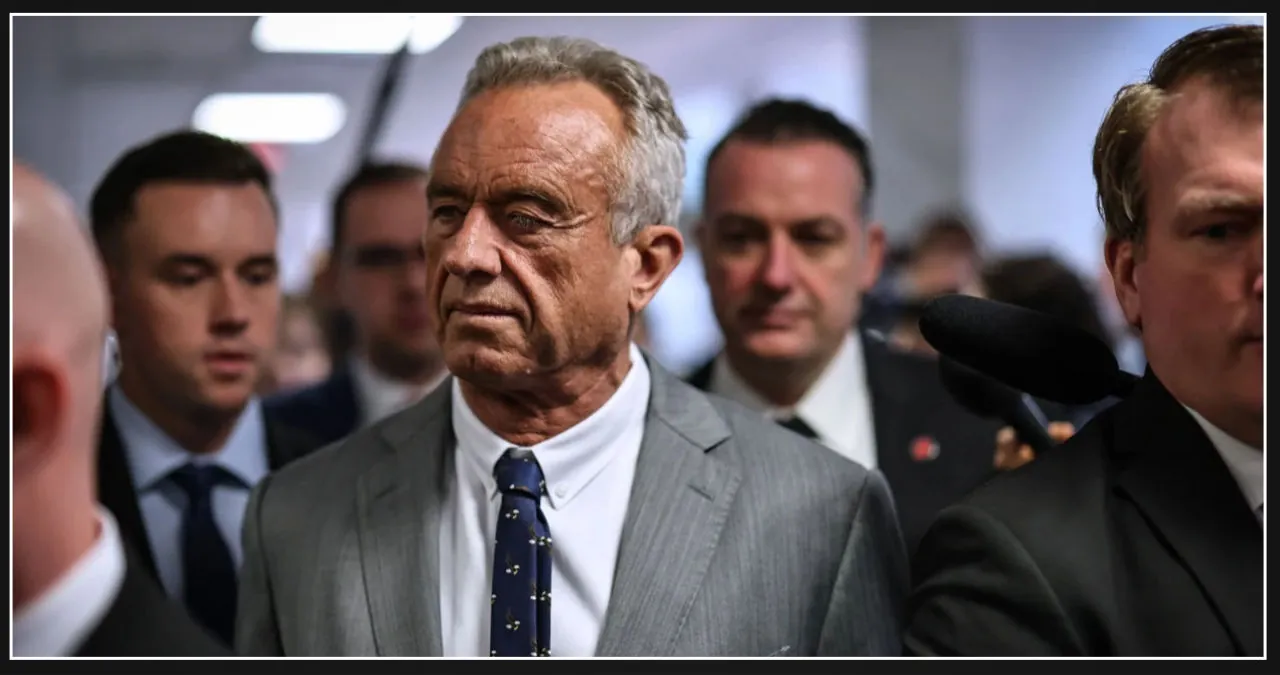Over 15,000 doctors have come together to express their opposition to the confirmation of Robert F. Kennedy Jr. as the secretary of health and human services, a position he was chosen for by President-elect Donald Trump.
A letter signed by multiple concerned individuals highlights the significance of having capable leadership at the Department of Health and Human Services (HHS) to ensure the health and well-being of 336 million Americans. The letter emphasizes the need for leaders who prioritize science, evidence-based medicine, and the enhancement of the public health system. It goes on to assert that Robert F. Kennedy Jr., the suggested candidate, not only lacks the qualifications required for such a position but also poses a potential threat to the agency’s effectiveness and credibility.
The Committee to Protect Health Care, a physicians advocacy group, has recently shared a letter online. The letter highlights not only Kennedy’s widely known anti-vaccine stance and advocacy but also mentions other conspiracy theories he has actively propagated. These theories include unfounded allegations linking school shootings to antidepressants and his endorsement of discredited treatments for Covid-19.
The letter expresses strong dissatisfaction with the appointment, stating that it is disrespectful to healthcare professionals who have dedicated their careers to safeguarding patients from avoidable health issues and mortality.
Kennedy has been actively engaging in meetings with senators from both the Republican and Democratic parties on Capitol Hill as he prepares for his confirmation hearing, which is yet to be scheduled. In order to secure his confirmation, Kennedy would require the support of all but three Republican senators, assuming that all Democrats in the Senate vote against him.
Kennedy chose not to respond to the request for comment regarding the letter. When asked via text about the growing opposition from doctors and public health organizations concerning Trump’s plan to nominate Kennedy, Katie Miller, Kennedy’s spokesperson on the Trump transition team, dismissed the backlash as a mere scheme to deceive donors of advocacy groups.
In a text message, Miller expressed confidence that Robert F. Kennedy Jr. would be confirmed and emphasized that those who were trying to undermine him would not have any influence or position at HHS. He also wished them luck and extended his best wishes.
Physicians and public health advocates have responded to Kennedy’s controversial selection by sending a letter and launching a campaign. They are urging healthcare professionals to reach out to their senators and the American Medical Association. These actions demonstrate the ongoing efforts to address concerns surrounding Kennedy’s appointment.
The nonprofit organization Protect Our Care, known for its efforts to safeguard the Affordable Care Act, has recently initiated a campaign shedding light on Kennedy’s visit to Samoa in 2019, just before a devastating measles outbreak that claimed the lives of 83 individuals, primarily children. Alongside a comprehensive report, the organization has released digital advertisements to raise awareness about this issue. Hawaii Governor and medical professional, Josh Green, expressed concerns in a recent article for The New York Times, attributing the spread of vaccine misinformation by Kennedy as a contributing factor to the outbreak in Samoa. He further cautioned against appointing Kennedy to the Department of Health and Human Services, emphasizing the potential risks it poses to public health.
In November, Kennedy faced strong criticism from various organizations. Community Catalyst, a health care consumer advocacy group, labeled him as “wholly unqualified and a dangerous pick.” Public Citizen, a nonprofit progressive consumer rights group, went even further, stating that Kennedy would “endanger people’s lives if placed in a position of authority over health.”
Green stood alongside members of Congress who have a background in public health at a news conference opposing Kennedy. The event was organized by 314 Action, a progressive political action committee that focuses on electing scientists.
Kennedy’s supporters and a committed political action committee (PAC) known as American Values 2024, have portrayed the opposition to his nomination as a calculated move by pharmaceutical companies aimed at silencing him and obstructing his mission to improve the health of the nation.
The Committee to Protect Health Care has been actively opposing drug companies in state-level efforts to establish prescription drug affordability boards. It is important to note that the committee is not funded by the pharmaceutical industry or for-profit health corporations.
“We are definitely not supporters of the pharmaceutical industry, and they certainly do not support us,” stated Dr. Rob Davidson, an emergency room physician from Michigan and the executive director of the committee.
Davidson and the numerous other signatories of the letter were driven by a deep concern for their patients.
“He said that Kennedy poses a clear and present danger.”

